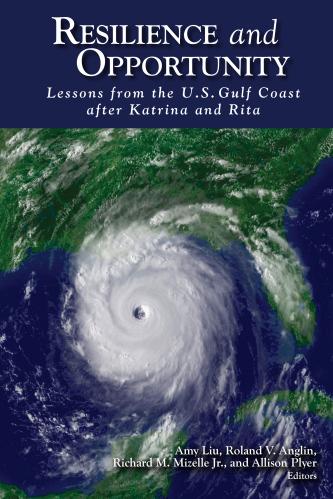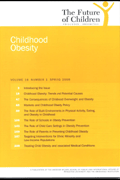Much like Hurricane Katrina that devastated New Orleans and other Gulf Coast areas 12 years ago, Hurricanes Harvey and Irma serve as learning experiences for state and local leaders, disaster response experts, federal government agencies, and the United States as a whole. In the wake of the destruction that Harvey caused in Houston and nearby areas, and as Irma’s effects are more fully understood, Brookings experts provide advice to everyone with a stake in disaster relief and recovery based on the lessons we learned from recent hurricane events.
The FCC could improve public safety by implementing mobile phone delivery alerts
Tom Wheeler, a Brookings visiting fellow and former chairman of the Federal Communication Commission (FCC), addresses the FCC’s inaction on implementing Wireless Emergency Alerts (WEA), which left citizens and emergency managers no choice but to communicate using social media during Hurricane Harvey. Wheeler discusses how the voluntary program currently in place for wireless service providers is sorely lacking in what it delivers.
Wheeler argues that WEA upgrades would offer public safety officials the ability to communicate much-needed safety information to mobile phones of affected individuals through geo-targeting and decries the Trump administration’s decision to not follow through with WEA improvements.
Finding housing solutions for those displaced by disasters takes a long time
Brookings Nonresident Senior Fellow Elizabeth Ferris emphasizes that those who seem to be most in need of housing after natural disasters, including earthquakes such as the one that devastated Haiti in 2010 are among the most vulnerable and are disproportionately renters rather than homeowners. She explains that renters usually have less political influence than homeowners do and this causes disaster support programs to prioritize homeowners during reconstruction. Ferris recommends that authorities begin their long-term recovery planning with poor or low-income renters in mind.
The effect of hurricanes on children’s physical health, mental health, and schooling
Hurricane Katrina destroyed or badly damaged most school buildings in New Orleans, displacing thousands of students as they dealt with the trauma of the storm. Now, students in the Houston area face similar challenges, with parents and local officials scrambling to make plans as many schools are likely to remain closed for months. Jon Valant, a fellow with the Brown Center on Education Policy at Brookings, discusses the potential harm to Hurricane Harvey’s youngest victims. He highlights the struggles (and successes) of children affected by Katrina, along with lessons they provide to care for children affected by Harvey.
Rebuilding with inclusion
After Katrina, New Orleans rebuilt but the city needed to adapt in ways that would address what helped make Katrina one of the costliest disasters in U.S. history, argues Brookings Rubenstein Fellow Andre Perry. Perry discusses how an economy fueled by low-wage work and undesirable public systems could not uplift a chronically poor, underemployed black community.
He explains that federal recovery dollars can provide a short-term boost for an economy, but it takes creative planning to have those dollars churn sustained economic growth. Perry emphasizes that, while Harris County, Texas (which has one of the most diverse labor forces in the country) has a robust economy that provides a solid foundation for recovery, the stakes are just as high in confronting this natural disaster as they were for New Orleans 12 years ago.
Swift funding and coordination by federal agencies is key
Andre Perry and Amy Liu, vice president and director of the Metropolitan Policy Program, writing in the aftermath of Hurricane Harvey, say that the Trump administration and Congress can take lessons from the Katrina aftermath to show that “speed of action, scale of aid, and interagency coordination can set a strong foundation for helping people and communities restore their lives and activities.”
Embrace Resilience
After Hurricane Sandy struck New Jersey and caused extensive damage throughout the northeastern United States, Robert Puentes and Bruce Katz of the Metropolitan Policy Program wrote that “In the wake of recent high-profile natural disasters, cities, metropolitan areas and regions across the country are beginning to embrace resilience as the new planning norm.” Resilience—which refers to how cities “plan, design, build, and manage their communities”—requires not only local strategies but the support and coordination of the federal, state, and local governments.
Also, listen to Amy Liu’s podcast on the 10th anniversary of Hurricane Katrina, in which she discussed resilience and New Orleans’ recovery from that storm.
Finally, read four timely reminders from Shalini Vajjhala, a nonresident senior fellow at Brookings, on ensuring that communities hit by future storms are better protected.
The Brookings Institution is committed to quality, independence, and impact.
We are supported by a diverse array of funders. In line with our values and policies, each Brookings publication represents the sole views of its author(s).







Commentary
Some lessons to learn after hurricanes
September 12, 2017